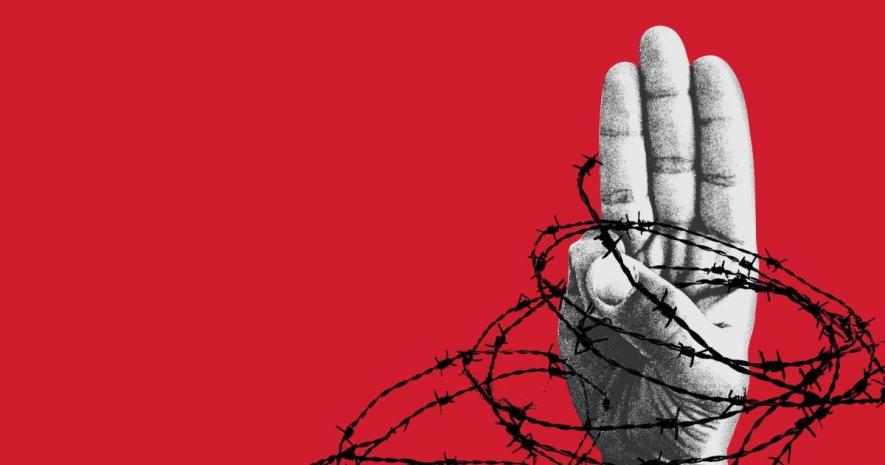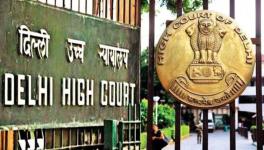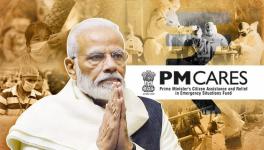Right to Free Speech And Expression Includes the Right to Publish and Circulate One’s Opinions: Delhi HC

Image courtesy: Adam Maida /Human Rights Watch
Last week, the Delhi High Court passed an order in an interlocutory application by a media house against online news portal Newslaundry for allegedly ridiculing and defaming its news broadcast and anchors through its content, reported The New Indian Express. The Court refused to grant any interim relief to the plaintiff (media house) and dismissed its application for interim relief.
The court stated that the relief sought by the plaintiff - to take down videos by the defendant on account of copyright infringement and defamation- cannot be granted since the ingredients for granting an interim injunction are not found in the case. The videos in question were of different programmes by defendant which made comments on the type of broadcast, reportage of the plaintiff – while showing the video.
TV Today Group (comprising of broadcast TV channels like Aaj Tak and India Today) approached the Delhi HC asking for an injunction i.e., removal of videos that are uploaded on defendant’s website with TV Today’s content and restriction on future content. The basis for TV Today’s arguments against defendant was twofold. One was infringement of copyright by reproducing their content by the latter, and the second was about the dealing of the original content by defendant -- being defamatory to TV Today network. The following is a breakdown of arguments and what the court held in the case.
On Maintainability
Defendant argued that the application for injunction cannot be entertained since the dispute was not purely a commercial one. Commercial disputes are to be settled by Commercial Courts as per the Commercial Courts Act, 2015. The suit filed by TV Today group had arguments regarding copyright infringement which is a commercial dispute, and defamation which is a non-commercial dispute.
The court however stated that the Order 2 Rule 2 of the Civil Procedure Code mandates that a suit should include whole of the claim and on the basis of reading of definition of a Commercial Dispute- which also includes the disputes arising out of the stated disputes in the definition and held the dispute was a commercial dispute.
On Copyright Infringement
Copyright is a right of the creator over the content that has been created. The creator has the sole right to authorise anyone else to reproduce such content under the Copyright Act, 1957. There are, however, exceptions under Section 39 and 52 when the reproduction of such content can be construed as ‘fair dealing.’ This means that reproduction of certain content will not be construed as infringement of copyright.
Defendant argued that its usage of TV Today’s original footage to criticise it comes under ‘fair use’ for the purposes of comment or review under Section 52 (1)(a)(ii) of the Act.
The court stated that the degree to decide what is fair dealing depends on various factors including to see if there is any malice or any commercial disparagement etc. However, the court stated that the question of whether defendant’s usage can be construed as ‘fair dealing’ under the Copyright Act can only be decided during the trial and cannot be decided in an interlocutory application.
On Freedom of Speech
Defendant had argued that its programme is a satire on the programmes of TV Today and therefore protected under Article 19(1)(a) of the Constitution which guaranteed Right to Freedom of Speech and Expression.
The court made some observations on free speech wherein it stated, “Right to comment on content created on social-media or on T.V. channels has also to be recognized as a facet of the right to free speech and expression under Article 19(1)(a).” However, the court also opined that the right to reputation and privacy cannot be violated in the garb of right to freedom of speech.
Whether defendant’s actions fall under Article 19(1)(a) or not, the court stated, should be decided on trial.
Grounds for refusal to grant injunction
The court noted three cardinal and essential principles for the grant of interim injunction namely prima facie case, irreparable loss and injury, and balance of convenience.
The court noted that although there is a prima facie case against the defendant, there is no irreparable loss that had occurred to the plaintiff going by the lack of urgency that they have shown in removing the videos in question which have been in existence since 2018 whereas granting injunction would seriously injure the right of the defendant and also cause them loss. Therefore, the court noted that the balance of convenience shifts towards the defendant and thus refused to grant the injunction.
Court’s observations on Freedom of Speech
The court neither goes into the intricacies of right to freedom of speech (except in one case as discussed further) nor does it accept the contention of defendant that its right to unrestricted comment is in public interest since there is no regulator, unlike the print media, in the case of broadcast media. It goes on to state that defendant cannot take on the role of regulator since there are mechanisms established to address grievances regarding broadcast media. On the sphere of Right to Freedom of Speech and its inconsistency with the exception of defamation, the court reiterates a largely conventional and existing view that there needs to be a balance between the right to reputation and right to freedom of speech.
It should be noted that the Delhi High Court did not comment on defendant’s right to criticise nor did it weigh in the debate between defamation and freedom of speech. There were some observations, as discussed. The court recognises the irreparable loss that the defendant could suffer if there is an injunction against them and if the final outcome of the suit is in favour of the defendants.
A key observation by the court was recognising the diversity in reporting of news. The court said – “Every media house and channel on T.V. or the social-media platforms, including that of the defendants No.1 to 9, have their own philosophy, which gets reflected in the manner of reportage and content of the programmes and that is not necessarily a bad thing.”
And most importantly, the court has noted and ascribed importance to satire in democracy and stated that satire is devoid of malice. The court stated “Satire allows the satirist to criticize in the harshest of terms and critique actions of all, particularly of those in positions of power and/or authority and leadership. The intention of the satirist is to simultaneously highlight an action and its negative fallout, so that rectificatory action could be taken. It is never intended to disparage or harm reputation and thus is completely devoid of malice.”
The importance of this observation lies in the fact the court sees satire as something that goes beyond malice or harm reputation. The court also stated “While freedom of expression would include the art of satire, it must be evident that what was being presented is indeed satire. It must be self-evident and by its very character can never be a case of copyright infringement or defamation or even disparagement. Satire cannot be explained or else it would lose its flavour.”
The entire order may be read here:
Get the latest reports & analysis with people's perspective on Protests, movements & deep analytical videos, discussions of the current affairs in your Telegram app. Subscribe to NewsClick's Telegram channel & get Real-Time updates on stories, as they get published on our website.
























